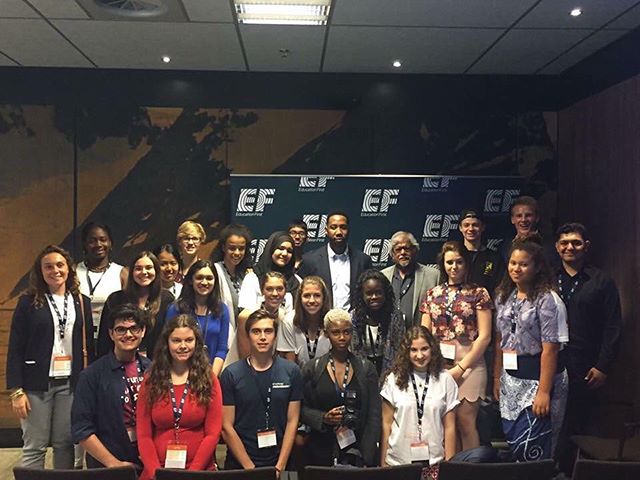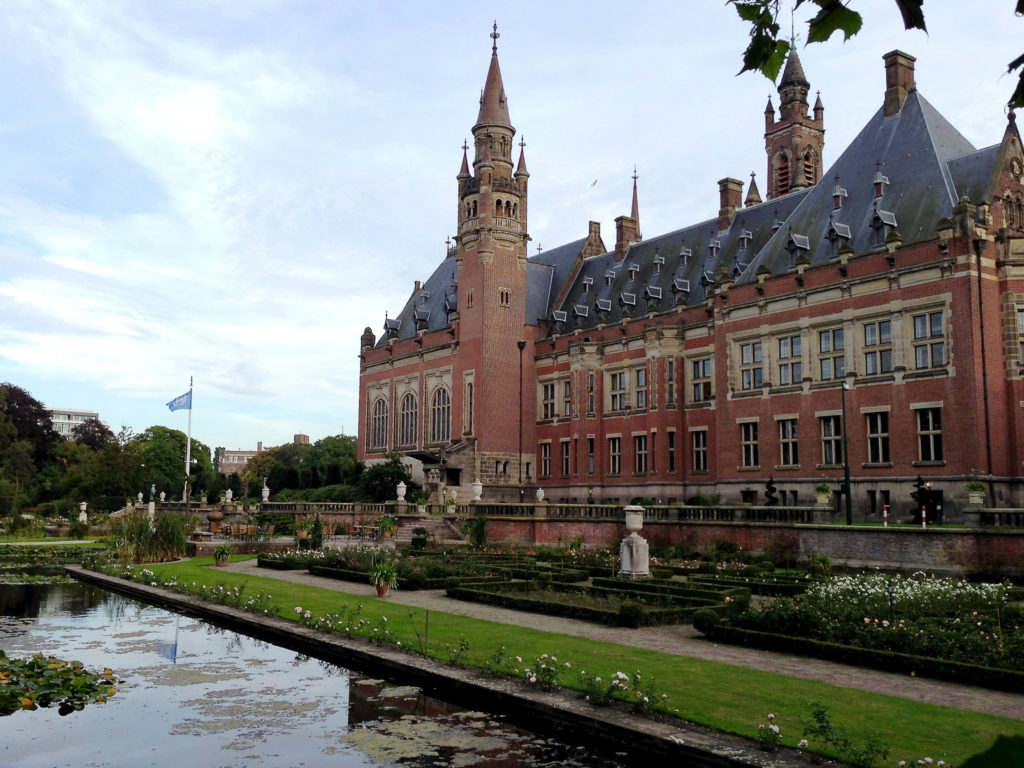This article is part of an op-ed series from EF’s Global Leadership Summit interns. The EF Global Leadership Summit Internship Program provides high school students with the chance to deepen their experience at EF Summits by gaining valuable real-life skills through public speaking, journalism, social media and photography. We asked each intern to discuss a topic discussed at the Summit that they were particularly drawn to. Below is what intern Sophie M. had to say about leadership across generations.
My name is Sophie Miller. I am from the small town of Ipswich, MA, about 45 minutes north of Boston. As a high school sophomore, I can’t find terribly much to do in the tiny, rural suburb I call home. And as a person with what I consider to be a restless personality, I’ve always looked to knowledge as a means of transcendence. As a child, I read every biography I could get my hands on. And from them I learned about the great leaders of the past and present. I idolized generational trailblazers from Cleopatra to Sheryl Sandberg, and always keeping them front of mind has led me to make many of the most important choices of my life. A choice I consider to be particularly life-changing was applying for the recent Global Student Leaders Summit at The Hague; first to travel, and then to be an intern. It exposed me to a bounty of new perspectives, ones that I can now carry with me like I carry the messages of the leaders of my childhood. It also exposed me to a truth I had not previously been aware of: that we are not all the same. We have not all had the same experiences and do not hold the same beliefs and therefore we do not all lead the same way, especially from generation to generation. These differences shouldn’t serve to divide us. They should unite us. We should be able to learn from each other and gain important new knowledge from the mistakes and successes of our peers, both young and old. I wanted to explore this further, so I based my paradigm at the Summit around the following question: “What is leadership to different generations, and how do these perspectives affect those who come after?”
Our culture has always been fascinated with observing the past in order to function efficiently in the present. We want to glean all that we can from important events in our history because we know this knowledge can help us understand and shape the present. It’s not just the events themselves, but their aftermath that transforms the future. It’s how those events spur people into action; the revolutions those events spark.
There are certain defining moments in history for every generation. For those who grew up in the 1920s and 30s, it was the Great Depression. For those in the 1940s and 50s, it was World War II. If you came of age in the 1960s or 70s, you were probably greatly affected by the Vietnam War, or the Civil Rights Movement. Nowadays, people champion issues like gay rights and gun control. Every generation has its own social or political war to wage, and from these battles leaders emerge. They do not spring up out of nowhere, fully formed. They are made – cultivated by their generation’s need for change.

Via Sophie
We would be foolish to think that generational gaps don’t separate us. Each generation has its own battles, triumphs, and heartaches, and this inevitably creates a divide between young and old. This divide, however, is not necessarily bad. It allows new types of leadership to emerge, making our society adapt to seemingly strange ideas and more modern ideals. When we take a look at the most influential leaders in our civilization’s recent history, we see a pattern: with each new generation comes a new style of change-making, as we inevitably learn lessons in the wake of an important event. In this way, our society is always moving and shaking towards a brighter future.
To fully understand how this process works, we can look to the social architects of previous generations. We can begin with an older generation – those who started their journeys in the 1950s and 60s. Our example here is Dr. Arun Gandhi, born in 1934.
When asked what he believed was the defining event of his generation, Dr. Gandhi cited apartheid in his home country of South Africa. He said that this helped him and others to recognize the violence and anger festering within their own society, which spurred an important change. This is a classic story of change-making: citizens recognized a wrong and began to right it. And as the years passed, people began to adopt new attitudes.
Gen X-ers Nicholas Kristof and Sheryl WuDunn were stuck in a different predicament. While their generation had missed the Vietnam War, they were faced with the repercussions of the tumultuous events of the Watergate Scandal and Nixon Administration. When asked about their generation’s leadership style, they were unsure how to define it other than to say that it was always shifting and changing with the times. Theirs was not quite the activist generation of the previous decade, but rather the organized, eager younger siblings ready to capture the world as they saw it and hold it accountable.
Finally, there is the newest perspective on leadership, from those raised in the era of technology and its looming presence in our lives. With all that has changed in the last ten years, this “iGeneration” has come to develop attitudes similar to those of our 1970s-era grandparents: we are flexible in our opinions, always willing to learn; we are (mostly) accepting of all genders, races, sexualities, and lifestyle choices; and we are unafraid to voice our opinions to refute those who have conflicting opinions. The difference that is most unique about our generation, however, is that we have a lot more opportunity to make our voices heard. Social media has brought with it a tidal wave of would-be activists, expressing concern and anguish over everything from transgender rights to a lion shot in its homeland. Some may call us overzealous, but you cannot say that we are soft-spoken or passive. We have come to learn that the most powerful tool at our disposal today is our ability to speak. Our generation’s challenge clearly does not come in the arena of learning to speak our grievances. I think that we have adopted an attitude that tells us that a tweet or a share on Facebook is the same as taking action. Let us not be mistaken: it is not. It is time we take a lesson from one of our forebears, the Dalai Lama: “It is unrealistic to think that the future of humanity can be achieved only on the basis of prayer; what we need is to take action.”
There is no “best” leadership style – every generation has its own lessons to offer those that come after, building on the shoulders of giants before them. There is something that we can all learn, regardless of our will to lead, from the struggles and victories of each wave of activists. It is also important to find our own style, crafting it from our own experiences and beliefs. This is the only way to stay relevant and subsequently the only way to enact change that will ring true for generations to come. Because we are the next wave of change-makers. We will have our own battles, and we will have our own triumphs. So keep one eye on the future and the other on the past; this is the way to lead.
What happens when you combine a dedication to creating change with a passion for human rights? Check out more highlights from our last summit!
Related articles

